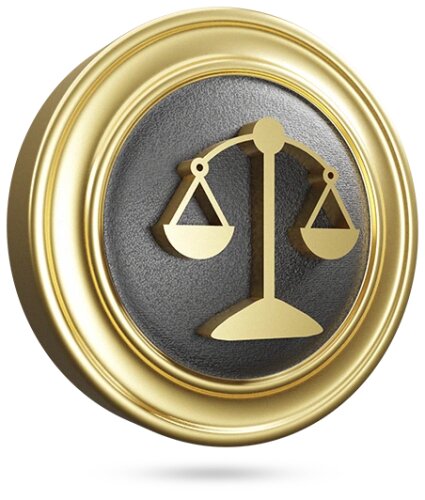Best Accounting & Auditing Lawyers in Brazil
Share your needs with us, get contacted by law firms.
Free. Takes 2 min.
Or refine your search by selecting a city:
List of the best lawyers in Brazil
About Accounting & Auditing Law in Brazil
Accounting and auditing practices in Brazil are governed by a blend of international standards and domestic regulations. The framework is primarily influenced by the Brazilian Federal Accounting Council (CFC) and the Institute of Independent Auditors of Brazil (IBRACON). Brazil is a member of the International Federation of Accountants (IFAC), aligning local practices with global standards such as the International Financial Reporting Standards (IFRS). The law mandates strict compliance with these standards to ensure transparency, reliability, and financial accuracy in business operations throughout the country.
Why You May Need a Lawyer
There are several situations in which legal guidance may be beneficial in the field of accounting and auditing:
- To ensure compliance with local and international accounting standards.
- When setting up a business, to understand the tax implications and necessary documentation.
- If facing a tax audit or investigation by Brazilian authorities.
- During mergers and acquisitions, to ensure due diligence is properly conducted.
- In cases of alleged financial misreporting or fraud.
- To navigate complex financial regulations and corporate governance issues.
Local Laws Overview
The Brazilian accounting and auditing landscape is defined by several key laws and regulations. Brazilian Law No. 6,404, also known as the Brazilian Corporation Law, outlines the financial statement requirements for corporations. Furthermore, Resolution CFC 1,255/09 has adopted the International Financial Reporting Standards (IFRS) for public companies. The local tax system, which includes federal, state, and municipal taxes, must be adhered to rigorously, requiring thorough understanding of Normas Brasileiras de Contabilidade (NBC). Additionally, anti-corruption laws and policies, such as the Brazilian Anti-Corruption Act, influence auditing practices to prevent financial misconduct.
Frequently Asked Questions
1. What is the role of an auditor in Brazil?
An auditor in Brazil evaluates the financial records and statements of a company to ensure accuracy and compliance with applicable laws and standards, identifying any discrepancies or misrepresentations.
2. What are IFRS and why are they important in Brazil?
International Financial Reporting Standards (IFRS) are a set of accounting standards that ensure transparency and comparability of financial statements globally. In Brazil, they are crucial for globalization efforts and compliance with international business practices.
3. Who sets the accounting standards in Brazil?
The Brazilian Federal Accounting Council (CFC) and the Institute of Independent Auditors of Brazil (IBRACON) are the primary bodies responsible for setting accounting standards in Brazil.
4. How often are companies audited in Brazil?
The frequency of audits depends on the company size and type. Publicly traded companies require annual audits, whereas smaller businesses may be audited less frequently based on certain thresholds.
5. What penalties can a company face for non-compliance?
Penalties for non-compliance with accounting standards in Brazil may include fines, legal actions, and in severe cases, criminal charges against responsible individuals.
6. How do accounting and tax laws differ in Brazil?
Accounting laws dictate how financial information is recorded and reported, while tax laws define how businesses and individuals are taxed. Both must be complied with but serve different purposes.
7. Can foreign investors own accounting firms in Brazil?
Foreign investors can hold interests in Brazilian accounting firms, but they must comply with local laws regarding foreign ownership and professional operations.
8. What is the role of the CFC?
The Brazilian Federal Accounting Council (CFC) regulates the accounting profession, establishing ethical guidelines, certification requirements, and maintaining accounting standards in Brazil.
9. Are there specific auditing requirements for public companies?
Yes, public companies in Brazil are required to have their financial statements audited annually by an independent auditor to ensure compliance with IFRS and other relevant regulations.
10. How do mergers and acquisitions affect auditing needs?
Mergers and acquisitions increase auditing needs, requiring detailed due diligence audits to ensure accurate financial representations and compliance with relevant laws.
Additional Resources
Several resources can be valuable for those seeking guidance on accounting and auditing in Brazil:
- Brazilian Federal Accounting Council (CFC)
- Institute of Independent Auditors of Brazil (IBRACON)
- Receita Federal (Brazilian Federal Revenue Service)
- Instituto Brasileiro de Governança Corporativa (IBGC)
- Professional accounting firms specializing in Brazilian law
Next Steps
If you require legal assistance in accounting and auditing, consider the following steps:
- Consult with a specialized lawyer who understands Brazilian accounting and auditing laws.
- Gather all relevant financial documents and records for review.
- Ensure a clear understanding of your legal rights and obligations under Brazilian law.
- Consider contacting a certified public accountant for additional financial insights.
- Stay informed about any changes in legislation that might affect your accounting practices.
Lawzana helps you find the best lawyers and law firms in Brazil through a curated and pre-screened list of qualified legal professionals. Our platform offers rankings and detailed profiles of attorneys and law firms, allowing you to compare based on practice areas, including Accounting & Auditing, experience, and client feedback.
Each profile includes a description of the firm's areas of practice, client reviews, team members and partners, year of establishment, spoken languages, office locations, contact information, social media presence, and any published articles or resources. Most firms on our platform speak English and are experienced in both local and international legal matters.
Get a quote from top-rated law firms in Brazil — quickly, securely, and without unnecessary hassle.
Disclaimer:
The information provided on this page is for general informational purposes only and does not constitute legal advice. While we strive to ensure the accuracy and relevance of the content, legal information may change over time, and interpretations of the law can vary. You should always consult with a qualified legal professional for advice specific to your situation.
We disclaim all liability for actions taken or not taken based on the content of this page. If you believe any information is incorrect or outdated, please contact us, and we will review and update it where appropriate.
Browse accounting & auditing law firms by city in Brazil
Refine your search by selecting a city.













